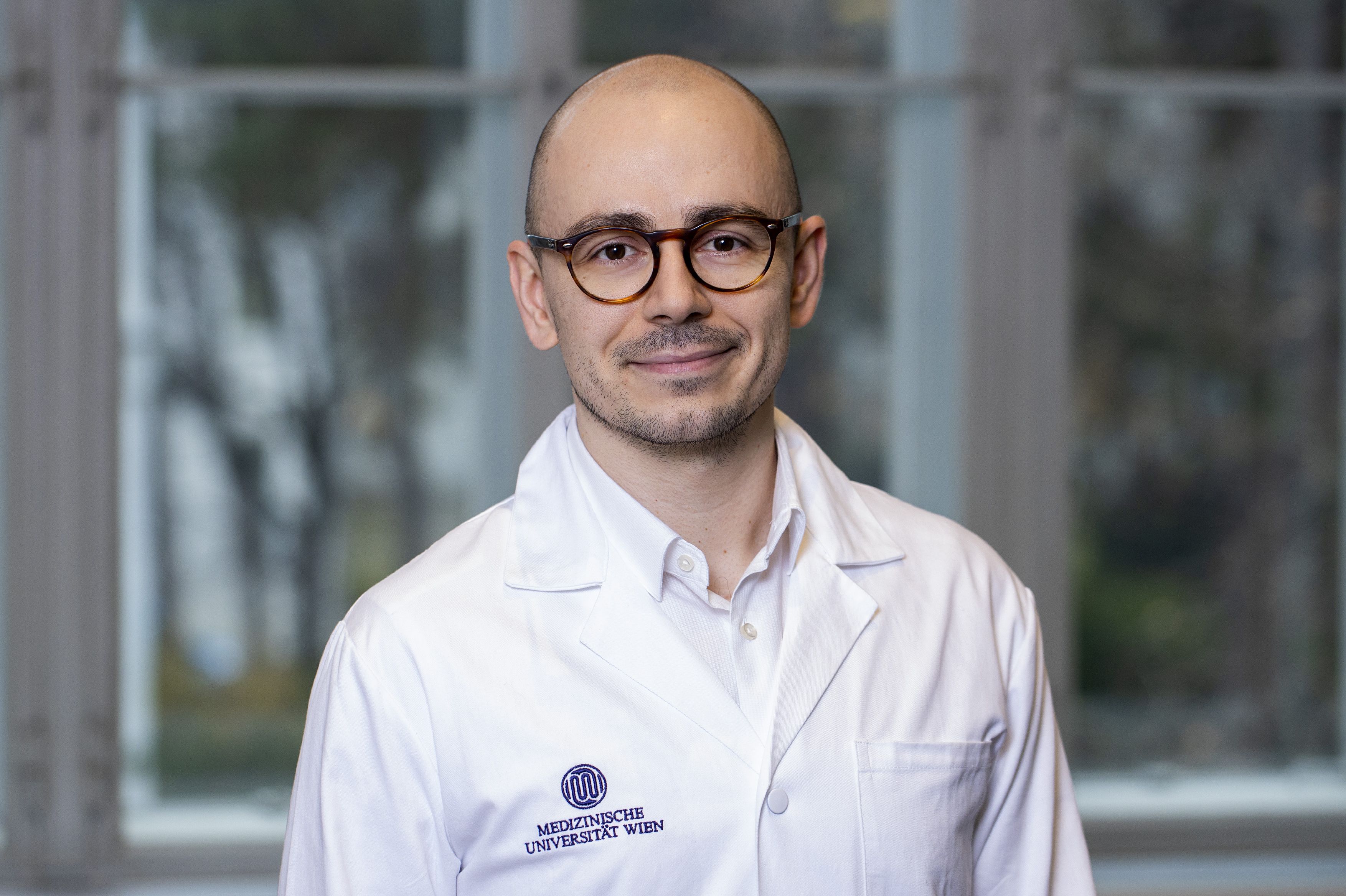
(Vienna, 12 June 2020) Igor Grabovac, resident physician in Public Health at the Department of Social and Preventive Medicine, will coordinate an international consortium dedicated to promoting equality of young LGBTIQ people entering the labour market and investigating effects of discrimination on health. The “Promoting Work-Based Equality for LGBT+Q+ Youth – WE Project” is financed through the “Call for proposals to promote the effective implementation of the principle of non-discrimination” and is co-financed (80%) by the European Union with 250.000 Euro.
Despite societal advancements, which led to an increase in visibility of lesbian, gay, bisexual, transgender and intersex (LGBTI+) people, discrimination and stigmatization still seem highly prevalent within the EU. Workplace-based discrimination is especially problematic as heteronormative working environments help in continuing social marginalization of LGBTI+ workers. A recent study noted that more than 50% of LGBTIQ people experienced discrimination at the workplace and 1/3 of transgender people were denied employment on the base of their gender identity. Health research shows that workplace discrimination and stigmatization is associated with higher levels of chronic stress, leading to poorer mental (higher incidence of depression and anxiety) and physical health (higher incidence of cardiovascular and gastrointestinal diseases, higher rates of infections and cancer, obesity, poor sleep, etc.) outcomes, as well as productivity loss and absenteeism. However, workplaces also provide an opportunity to educate workers and promote diversity and inclusion. Young workers, especially those identifying as LGBTI+, tend to be more susceptible to discriminatory behaviour, which is associated with internal hierarchies and the inability to speak out and with the precarious nature of entering the workforce.On Young People Entering the Labour MarketWith almost 6 million people aged 15-24 who are unemployed, and further 33 million who are economically inactive in the EU, the European Commission has stated that the period of entry to the labour market and finding steady employment of young workers is a top priority. Furthermore, it has been noted in literature that young and minority workers suffer the most under social pressures in their respective working environments. Moreover, research also suggests that young workers who experience problems at the workplace are less likely to ask for help or to report issues faced, young LGBTI+ even less so. This is because young workers are not as well informed about their rights, but many young people are also unaware of or actively disregard the structural determinants of their discrimination and marginalization, which leads to them internalizing their experiences and trying to cope with it independently.About the WE projectExperiences of young LGBTIQ people at the workplace have not been a focus of research nor how these influence the mental and physical health. Moreover, little is known about specific actions taken to ensure the transition of young LGBTI+ people from the education system into the labour force. WE PROJECT will adopt a three-prong approach, one empowering young LGBTI+ workers; a second targeting the professionals who work with young workers (e.g., vocational school teachers, psychologists, worker council members, occupational medicine physicians) and a third, targeting policy-makers and political and social stakeholders. WE PROJECT will also create an interactive toolkit to facilitate the exchange of the good practices aiming at the elimination of discrimination based on sexual orientation and gender identity at the workplace.The Consortium is coordinated by the Medical University of Vienna and includes academic institutions and non-governmental organizations active in the field of human rights and diversity including: University of Valencia (Spain), Forum for Freedom of Education (Croatia), Association Against AIDS - JAZAS (Serbia), Anglia Ruskin University (UK), SORA-Institute (Austria) and Comenius University in Bratislava (Slovakia). About Igor GrabovacIgor Grabovac is a resident physician in Public Health at the Department of Social and Preventive Medicine. His scientific research is focused on health behaviour and health behaviour modification in vulnerable groups. He is the current coordinator of the Competency Group for Sexual and Gender Diversity of the Austrian Public Health Association (ÖGPH), Member of the Steering Committee of the Section for Sexual and Gender Minorities Health of the European Public Health Association (EUPHA) and the Research Lead for the European Network of Medical Residents in Public Health (EuroNet MRPH). Igor Grabovac teaches in Block 6, FBL and Ring-Lectures and as of the academic year 2020/2021 will serve as Block Coordinator for Block 22/23 – Public Health.
Links
G ÖGPH - https://oeph.at/kompetenzgruppe-sexuelle-und-geschlechtliche-vielfalt
Section EUPHA - https://eupha.org/sexual-and-gender-minority-health
EURONET MRPH - http://euronetmrph.org/
Diversity mainstreaming MedUni Wien - https://www.meduniwien.ac.at/web/ueber-uns/organisation/dienstleistungseinrichtungen-stabstellen/gender-mainstreaming-und-diversity/
Regenbogengruppe MedUni Wien/AKH Wien - https://regenbogengruppe.meduniwien.ac.at/